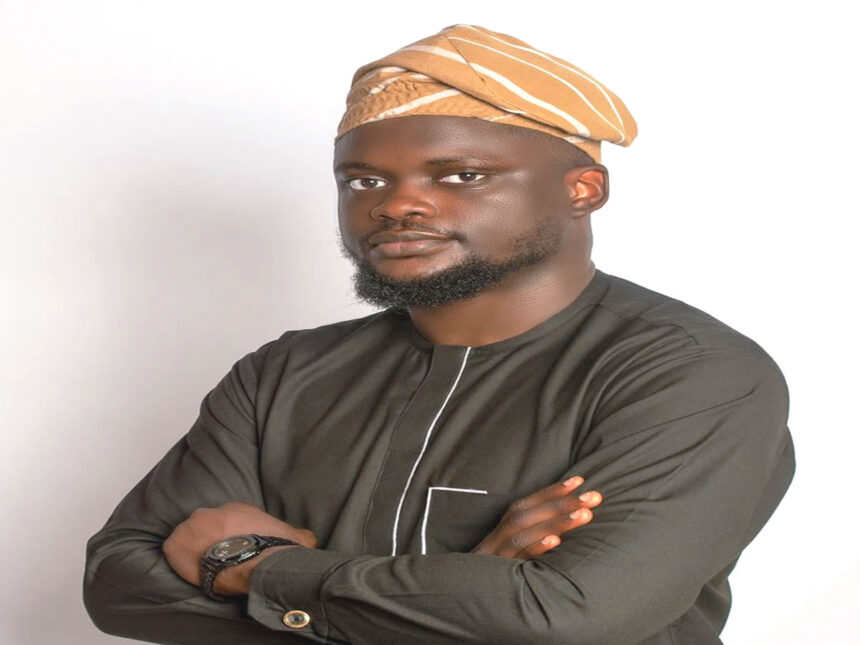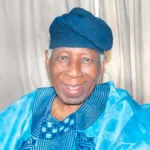Olasoji Awofesobi is a fashion entrepreneur, a model, and the convener of the Ibadan Urban Fashion Weekend (IUFW). He is currently based in the United Kingdom, where he works in the healthcare sector. In this interview by Kingsley Alumona, he speaks about the Ibadan and Nigerian fashion industry, and other related matters.
You studied Linguistics and Communication Studies. Do you practice what you studied and how is it impacting your current work?
While I don’t directly use Linguistics and Communication Studies in my role as a mental health support worker, the communication skills I gained from my studies are invaluable. My degree helped me to develop strong interpersonal and active listening skills, which are essential when supporting individuals with mental health challenges. Although my degree didn’t directly influence my career choice, I was drawn to mental health support after realising the impact I could have on people’s lives. My studies gave me a solid foundation in understanding human interaction, which plays a crucial role in my work every day.
In the last five years, you have been working in the fashion industry. What inspired you to go into fashion?
My journey into fashion started when I was a model in Ibadan. At the time, there was only one major fashion show a year, and it was hard to get in. I realised the city needed more platforms for models and designers. With the help of my parents and a few individuals, we launched the first edition of Ibadan Urban Fashion Weekend (IUFW) in 2017. Seeing it pave the way for more fashion events in the city was fulfilling and motivating.
Over the years, I’ve taken on roles as convener of IUFW, team lead for South-West Fashion Summit, and assisting young creatives with beauty pageants and fashion shows. I’ve also trained over 500 models, helping shape the next generation of industry talents.
The journey hasn’t been without challenges. I started the event during my final year at university, which led to an extra year of study. Financial struggles were a hurdle, especially when brands were hesitant to align with us. Balancing entrepreneurship with showbiz after graduation was another challenge. However, we’ve grown stronger each year, and this year’s edition proves it.
What is the idea behind IUFW and what do you intend to achieve with it?
The idea behind IUFW was born out of the need to create more opportunities for fashion designers, models, and creatives in Ibadan. When I started as a model, there was only one major fashion show each year, limiting exposure for emerging talents. IUFW was created to change that and provide a platform where fashion meets creativity, allowing talents to showcase their work and gain recognition.
Our goal is to make IUFW a major force in the fashion industry—not just in Ibadan, but across Nigeria and beyond. We aim to build a sustainable ecosystem where creatives can thrive, attract more industry stakeholders, and position Ibadan as a fashion hub. Through consistency, innovation, and collaboration, we hope to keep growing and elevating the fashion landscape.
This year’s edition of IUFW will be coming up this April. What is the significance or uniqueness of this year’s event and why should Ibadan people be interested in it?
This year’s edition of IUFW is significant because it represents growth, innovation, and a renewed vision for the fashion industry in Ibadan. Over the years, IUFW has created a platform for emerging and established designers, models, and creatives to showcase their talents. This year, we are taking things to an even higher level.
What makes this year’s event unique is the introduction of fresh concepts that elevate the entire experience — exciting collaborations, new creative showcases, and a lineup that promises to be bigger and better than ever. We have worked hard to refine every aspect of the event, ensuring that both participants and attendees have an unforgettable experience.
Ibadan people should be excited because IUFW is not just a fashion show — it’s a movement that puts the city on the map. It’s an opportunity to celebrate local talent, connect with industry professionals, and experience fashion in a way that blends creativity, culture, and entertainment.
What do you think is the role of fashion in promoting the culture and identity of Yoruba in Nigeria, and, by extension, the world?
Fashion plays a crucial role in preserving, promoting, and globalising Yoruba culture and identity. As regards cultural preservation and storytelling, Yoruba fashion is deeply rooted in tradition, with fabrics like Aso-Oke, Adire, and Ankara carrying historical and cultural significance. The intricate patterns, colors, and styles in Yoruba attire often tell stories of heritage, status, and spirituality. Regarding identity and pride, the traditional Yoruba fashion is a symbol of identity, distinguishing the Yoruba people and fostering a sense of pride and belonging. Outfits like Agbada, Buba, Iro, and Fila are worn during ceremonies, reinforcing cultural continuity.
When it comes to global influence and modern adaptation, Yoruba fashion has influenced global trends, with designers incorporating Adire and Aso-Oke into contemporary fashion. Celebrities, fashion influencers, and major runways now feature Yoruba-inspired designs, taking the culture worldwide. In terms of economic and creative growth, the Yoruba fashion industry supports artisans, weavers, and designers, creating jobs, and boosting local economies. The craftsmanship behind Yoruba textiles is gaining international recognition, leading to cultural exchange and export opportunities. Finally, in celebration of Yoruba heritage, fashion weeks, cultural festivals, and exhibitions showcase Yoruba fashion to a broader audience.
Events like IUFW contribute to this movement by blending tradition with modern fashion expressions.
The fashion industry is a multibillion industry in most Western countries. What do you think could be done to make the Nigerian fashion industry lucrative like its Western counterparts?
The fashion industry in Western countries thrives due to strong infrastructure, fashion hubs, production facilities, and accessible technology. In Nigeria, more investment is needed in fashion education, production facilities, and a reliable supply chain for fabric sourcing and manufacturing.
More training and skill development programmes for designers, tailors, stylists, and artisans will raise the skill level within the industry. Partnerships with international fashion schools or local talent development initiatives can help build a professional workforce.
The Nigerian fashion industry would benefit from more government support, including tax breaks, funding, and policies that promote local fashion. Incentives for local manufacturing, textile production, and sustainable fashion practices could stimulate growth. Intellectual property laws (e.g., copyrights and trademarks) should protect designers’ work, encouraging creativity and attracting international partners.
What is your advice to fashion entrepreneurs and businesspeople on how to manage Nigeria’s weak economy and stay in business?
Cost Management and Efficiency are important. Entrepreneurs should streamline operations, minimise waste, and look for affordable, yet quality materials. Working with local suppliers can also help reduce costs and boost the local economy. Furthermore, diversifying revenue streams is necessary. Fashion businesses should explore additional revenue streams such as online sales, consultancy, or offering fashion workshops and services. This can help mitigate losses in other areas.
At this year’s IUFW, we’re offering a workshop titled ‘The Business Side of Fashion.” This will provide valuable insights into how fashion entrepreneurs can navigate the business aspects of their ventures, from budgeting, marketing and scaling their businesses.
Tell us about your work in the UK.
I currently work as a mental health support worker in the UK. My role involves offering emotional support, connecting clients with services, and helping them manage daily activities. It’s a rewarding job, and I feel privileged to make a positive impact on people’s lives.
Beyond my primary role, I’m involved in mental health awareness and advocacy, working with local organisations to reduce stigma and promote better mental health practices. My work in the UK allows me to understand diverse cultural perspectives on mental health, which I integrate into my professional practice.
What do you love or admire about the UK that you would initiate in Nigeria if you had the means and power?
One thing I admire about the UK is its comprehensive mental health support system. The resources available here, from counselling to community support programmes, help to reduce the stigma around mental health.
If I had the means, I would introduce similar support systems in Nigeria, making mental health care accessible and reducing stigma. Additionally, I admire the UK’s commitment to diversity and inclusion. I’d love to see more initiatives in Nigeria that promote inclusivity and equality for all people, regardless of background or disability.
READ ALSO: Sandra Benede: A unique blend of fashion and social advocacy
WATCH TOP VIDEOS FROM NIGERIAN TRIBUNE TV
- Relationship Hangout: Public vs Private Proposals – Which Truly Wins in Love?
- “No” Is a Complete Sentence: Why You Should Stop Feeling Guilty
- Relationship Hangout: Friendship Talk 2025 – How to Be a Good Friend & Big Questions on Friendship
- Police Overpower Armed Robbers in Ibadan After Fierce Struggle


![on Mapo Fubara and Nigeria's corruption Èmil’ókàn ] You be terrorist Ahmadu Bello Louis Edet House Oyinlola’s crocodile ADC death Tinubu’s Chicago Owo Park June 12 casualties Sanwo-Olu on Tinubu White House Oloyede’s tears, Aso Rock voodoo statistics Baba Fasoranti at 99 Tinubu’s Àjàntálá son Umo Eno Oborevwori and Okowa’s Mike Adenuga at 72 Nigeria hosts Nyerere’s one-party Nigerian leaders as CBEX Goodnight Voltaire Tell Your Papa as spirit of Rwanda’s Profiling Natasha as Segilola](https://tribuneonlineng.com/wp-content/uploads/2025/04/flickers-150x150.jpg)



